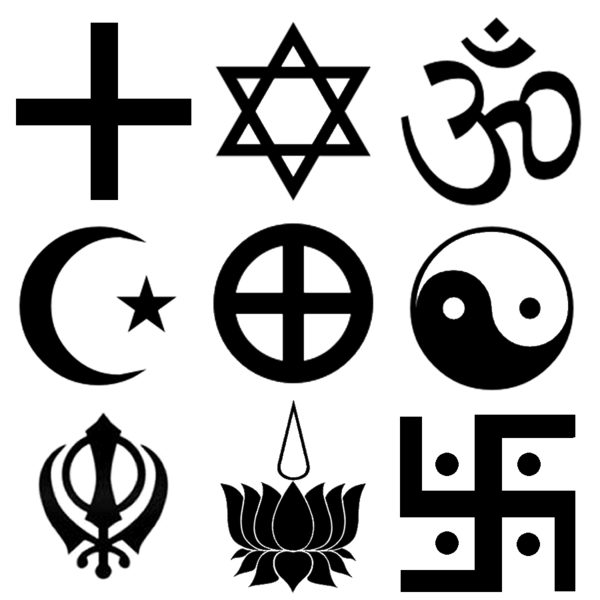The United States is a nation renowned for its myriad of cultures, beliefs, and traditions, creating a vibrant tapestry that reflects the complex nature of its society. At the heart of this multicultural symphony lies the question: What religion is the United States? The answer, however, is not simplistic. Inextricably linked to the historical development of the country, the religious landscape is characterized by pluralism, with Christianity emerging as a predominant force.
When considering the religious identity of the United States, one cannot dismiss the historical perspective. The founding fathers articulated the importance of religious freedom in the Constitution, allowing a multitude of beliefs to flourish. Initially, Christianity—especially various denominations of Protestantism—was the bedrock of American society. However, as the nation grew and evolved, so did its spiritual fabric, facilitating the entrance of diverse religious beliefs, including Judaism, Islam, Buddhism, Hinduism, and various indigenous faiths.
This multifaceted religious climate fosters pluralism, which can be defined as the coexistence of diverse belief systems within a singular society. Pluralism is not merely tolerance; it is an active engagement with differing faiths, leading to a dynamic interchange that contributes to the collective identity of the nation. Christianity remains at the forefront of this discourse, yet its expression has undergone significant transformations.
The early Protestant denominations, such as Puritanism and Baptism, paved the way for individual interpretations of faith. The Great Awakenings of the 18th and 19th centuries, with their emotional revivals and evangelism, further transformed Christianity in America, creating new sects and movements, including Methodism and Pentecostalism. These waves of spiritual fervor ushered millions into the fold of Christian belief, emphasizing personal relationships with God rather than mere adherence to doctrinal orthodoxy.
In contemporary society, one observes a remarkable shift in the perception of Christianity. While many still identify as Christians, the nature of that identification is increasingly nuanced. According to surveys, a growing number of individuals recognize themselves as spiritual but not religious, indicating a disconnection from organized institutions yet still seeking a relationship with the divine. This trend hints at a broader cultural phenomenon, where traditional markers of faith are redefined in light of personal experience.
Moreover, the increasing intermingling of various religious traditions exemplifies the pluralistic nature of American society. Interfaith dialogues and multi-faith communities are gaining prominence, inviting individuals from diverse backgrounds to converge and explore their beliefs collaboratively. This engagement underscores a collective yearning for understanding amidst differences, yet it also raises questions about the integrity and authenticity of individual traditions. Christianity faces the task of addressing these challenges while maintaining its foundational tenets.
In pursuing a deeper understanding of spirituality, many Christians are drawn to the concept of pluralism not simply as acceptance of diversity, but as a theological engagement with other beliefs. This is particularly evident in the growing interest in ancient wisdom, meditation practices, and contemplative spirituality that transcend denominational barriers. Such practices emphasize introspection and personal growth, encouraging adherents to explore the spiritual dimensions of their lives more profoundly.
Despite the embrace of pluralism, the United States has also witnessed a resurgence of more conservative Christian movements, such as Evangelicalism, which often reject the notion of pluralism in favor of a more exclusive theological stance. These groups maintain a strict interpretation of the Christian doctrine, advocating the belief that salvation is attainable solely through faith in Jesus Christ. This can create tension within the broader Christian community, leading to debates on the implications of inclusivity versus exclusivity in religious belief.
Additionally, this intriguing landscape prompts a fascination with the relationships between different faith traditions. The exploration of how one belief system interacts with another can yield rich insights into social dynamics and collective human experience. For instance, the interaction between Christianity and indigenous spiritual practices prompts critical reflections on colonial legacies, respect for creation, and the relational nature of existence.
The pluralistic identity of the United States also compels one to consider the implications of globalization and the consequent influences on American religious life. As people from diverse cultures and faiths migrate to the U.S., the religious scene continues to undergo transformation. New religious movements and immigrant communities contribute to the rich amalgam that is American spirituality, further complicating the narrative of what it means to be religious in this country.
In recounting this multifaceted approach to understanding the religious landscape, one must acknowledge the role of modernity and technology as facilitators of pluralism. The internet has revolutionized the way individuals engage with religious content, leading to the democratization of information and a plethora of resources for spiritual seekers. With the click of a button, one can explore varying interpretations of faith, encouraging a dialogue that transcends geographic, cultural, and denominational boundaries.
Thus, the United States can be characterized as a society rich in religious plurality, where Christianity plays a central yet evolving role. Engaging with the complexities of pluralism can lead to profound insights into the human condition, prompting believers to reevaluate their convictions in light of differing perspectives. The future of American religious life, marked by both collaboration and contention, remains a compelling area of exploration, indicative of the ongoing quest for meaning and connection in an ever-changing world.



